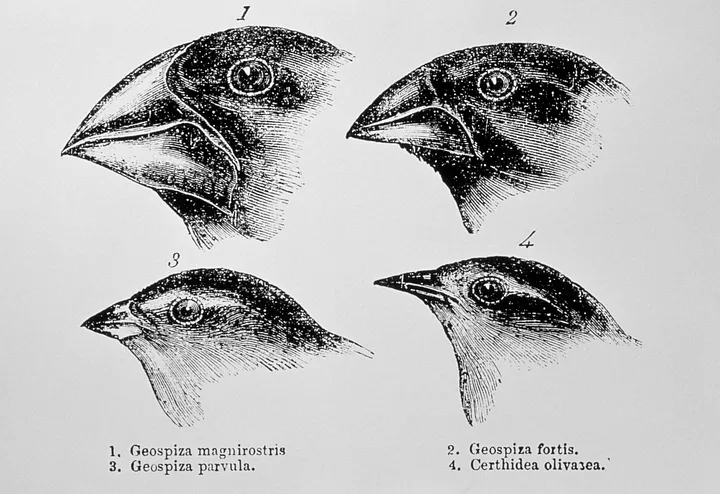
Just as two birds on a branch fight for individual territory, we compete for occupancy in the minds of the public. As H. Tajfel and J.C. Turner explain in their 1979 article, An Integrative Theory of Intergroup Conflict, disagreements and subsequent discrepancies between groups arise “when [those] groups compete for the same resource [because] they are perceived threats to the groups’ status and power.” It is for this reason that conflicts between disagreeing groups on this matter occur so frequently; the mere existence of an opposition is, in and of itself, an innate detraction from one’s efforts towards ideological survival.
Humans are innately prone to biases, and while the already-discussed technical and sociological lenses certainly construct a foundation in answering the initially-posed question of data distrust, our approach to an answer is, perhaps, most strongly rooted in the discipline of psychology. By means of the psychological perspective, we can understand that heuristics and the innate cognitive biases derived from our mental conceptualization of the world are determining factors in the populace’s distrust of data — as they are in ultimately anything one does not intuitively understand to be true. The push to shift this ideological paradigm of skepticism is, in totality, an uphill battle against human nature. In their 1974 article Judgment Under Uncertainty: Heuristics and Biases, Amos Tversky and Daniel Kahneman explain that humans are “reliant on a limited number of heuristic principles which reduce the complex tasks of assessing probabilities and predicting values to simpler judgmental operations.” To their point, we are constrained by the heuristics — or mental shortcuts — that we use in everyday life; and even if these shortcuts do allow us to simplify and make sense of a complex world, they ultimately lead us towards incomplete and, often, incorrect conclusions.
This aforementioned “uphill battle” is not solely a matter of heuristics and biases, however, as it is — of course — multifaceted and influenced by, what Tversky and Kahneman referred to as, the “initial value”. They defined this concept as a mental starting point — the preconceived notion — from which people then slowly deviate as new information is introduced. In practice, our estimates “[start] from an initial value that is adjusted to yield the final answer. The initial value, or starting point, may be suggested by the formulation of the problem, or it may be the result of a partial computation.” Just as Tversky and Kahneman posit, our pre-existing conceptualization of an idea is what ultimately rules our perception of that idea, as even when new information is introduced and adequately processed, we are still agnostic to the original conceptualization, merely deviating from an initial value. This starting point, which ultimately serves as a mental anchor of sorts, is — in part — why we so often fall victim to confirmation bias and so often observe illusory correlations. If we want something to be true, especially if we perceive that idea to be true, it becomes very difficult to deviate from the initial value to such a magnitude that we longer maintain such a perception — it is, truly, an uphill battle.
There is, lastly, a psycho-evolutionary component that is integral to the construction of these innate notions — the unconscious. While it is indeed difficult to overcome the biases of that for which we are aware, it is infinitely more difficult to deviate from that which exists in the back of our minds. Not only do these seemingly-intuitive biases have much lower barriers to operational access, but they also occur much faster and are therein more difficult to prevent. Innately, it is easier to use our intuition; and from an evolutionary perspective, it is also far less resource-intensive than executing an in-depth analysis. As Gerd Gigenrezer explains in Gut Feeling: The Intelligence of Unconscious, “people use their instincts because [they] have evolved over time to help us … make quick decisions”, which ultimately keep us alive as “unconscious processes are … much faster than conscious deliberation.” To Gigenrezer’s point, it is perhaps better to be quick and wrong — having at least executed an action — than to be slow and correct, but dead. When not in immediate danger, however, we are afforded time to deliberate, and as it pertains to the understanding of quantitative insights, we should take the time to challenge our preconceived notions; we should take the time to deviate from what we think we know to be true; and we should aim to be more correct in an effort to better understand the world within which we exist. The psycho-evolutionary perspective would posit that people are hesitant to draw their conclusions from and give their trust to data because they are slow to adapt, and because the previous means by which they reached conclusions were effective enough — fine; but just because the status quo is good enough does not mean we should not or cannot strive for something better.
To answer the question of why so many still struggle to trust the numbers is ultimately a matter of understanding human nature; it is a matter of understanding that humans cut corners and that we cheat; it is a matter of understanding that we will believe what we want to believe even if that belief does not hold true; above all, however, it is a matter of reconciling with the fact that despite inventing the computer, despite formulating cures for deadly disease, and despite pushing the bounds of what we know to be possible, we are still imperfect creatures. We distrust data not because it is right, not because it is what will drive progress — doing so will guarantee quite the opposite, in fact — but because we are in an ever-lasting search for the path of least resistance. We want things to be easy because to be easy is to be certain and stable, and humanity is fragile — our existence is delicate.
As it is, there will always be sects of civilization that disagree, and much the same there will always be a pro and an anti as it pertains to the perception of data and analytics. Nonetheless, bridges are meant to be crossed, and minds are meant to be changed — evolution is the driving force of survival, and in our pursuit to preserve our ideologies, we shall seek to understand just as we do to be understood. Perhaps we may draw closer along the way.





